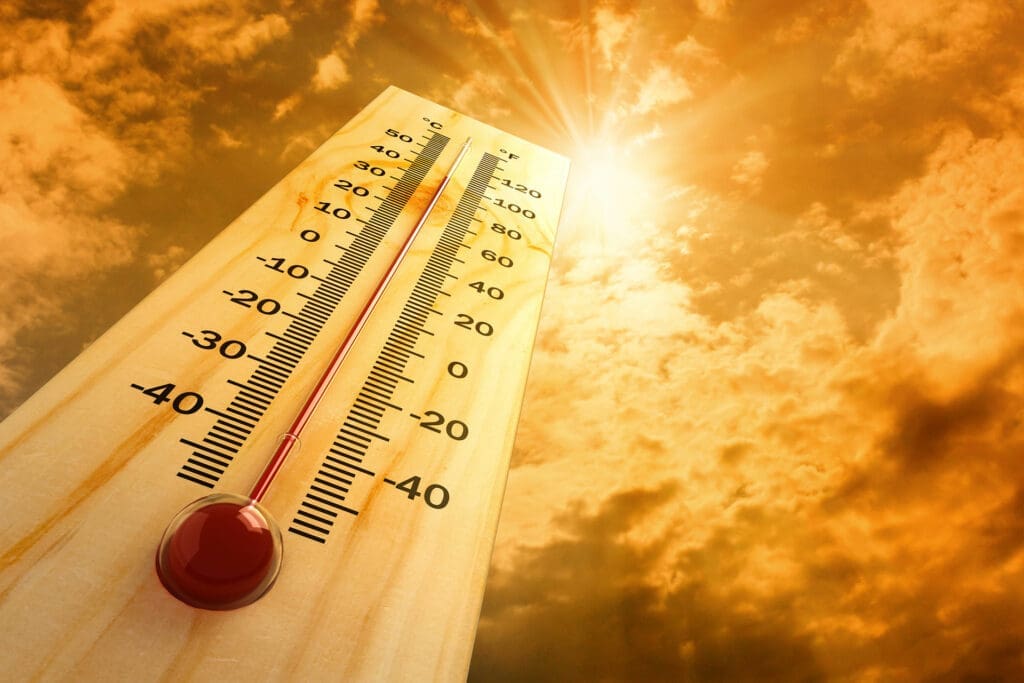Keep Cool When Heat Is On
June 28, 2019

When the temps rise into the 90s and the heat index goes higher, it’s important to take steps to prevent heat-related illnesses. Heat stroke and exhaustion can occur when our bodies cannot properly cool themselves.
Our body cools itself by sweating. In extreme heat, sweating may not be enough. And when humidity is high, sweat doesn’t evaporate as quickly which prevents the body from releasing heat quickly.
The best way to beat the heat is to stay cool and hydrated. Follow these steps.
- Drink lots of fluids especially water. If your physician limits the amount of fluid you drink or has you on water pills, ask how much water you should drink while the weather is hot.
- Don’t wait until you’re thirsty before drinking fluids.
- Avoid drinking alcohol and caffeine. Stay away from drinks that are high in sugar or very cold as they can cause stomach cramps.
- Use sunscreen with SPF 30 or higher. Protect your face with a wide-brimmed hat and sunglasses.
- Seek the shade of a tree or umbrella. The temperature will feel 10 to 15 degrees cooler! If you will be at the beach or kids’ sporting event, bring your own shade such as a large umbrella or portable canopy.
- Stay indoors in an air-conditioned place. If you don’t have air conditioning, visit public buildings that are cool like libraries and malls.
- Wear lightweight, light-colored and loose fitting clothing.
- Take a cool shower or bath.
- If you must be outside in the heat, limit outdoor activity to early morning and evening hours.
- Avoid strenuous exercise. If you must exercise or work outdoors, pace yourself and drink plenty of fluids.
- Rest often in the shade or an air-conditioned building.
- Check on people who are more at risk to extreme heat. Keep an eye on infants, children, pets, elderly and vulnerable people. Check on them frequently and look for signs or symptoms of heat illness.
- Do not leave children or pets in cars.
Symptoms of heat exhaustion include:
- paleness
- tiredness
- weakness
- headache
- fainting
- muscle cramps
- heavy sweating
- nausea or vomiting
Left untreated, heat exhaustion can lead to heat stroke which is a medical emergency. Get the individual in cool temperatures and seek medical attention immediately. Heat stroke symptoms are:
- fever above 103 degrees F
- red, hot, dry skin with no sweating
- rapid, strong pulse
- throbbing headache
- dizziness
- nausea
- confusion
- unconsciousness
Stay cool and have a safe summer.